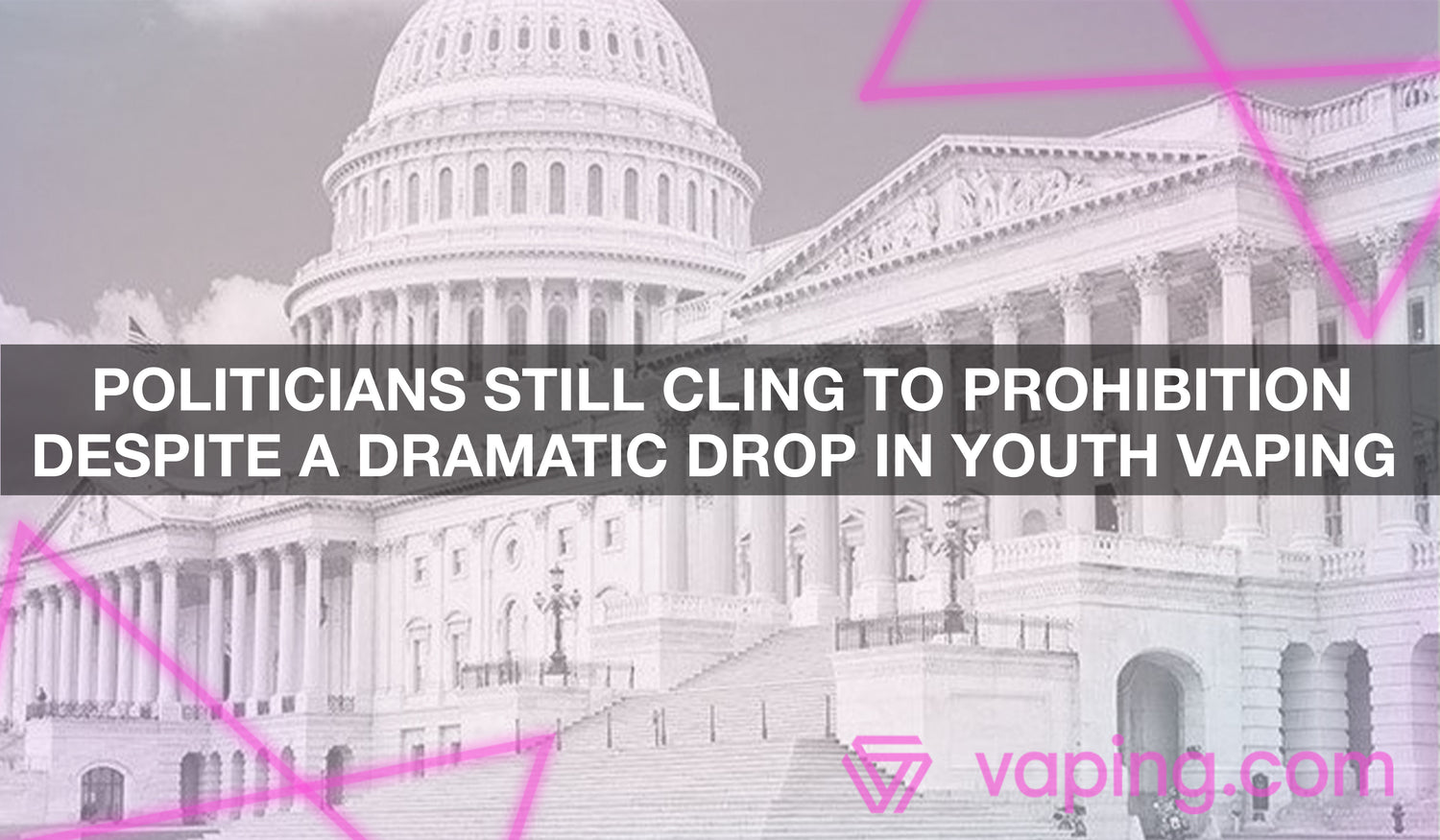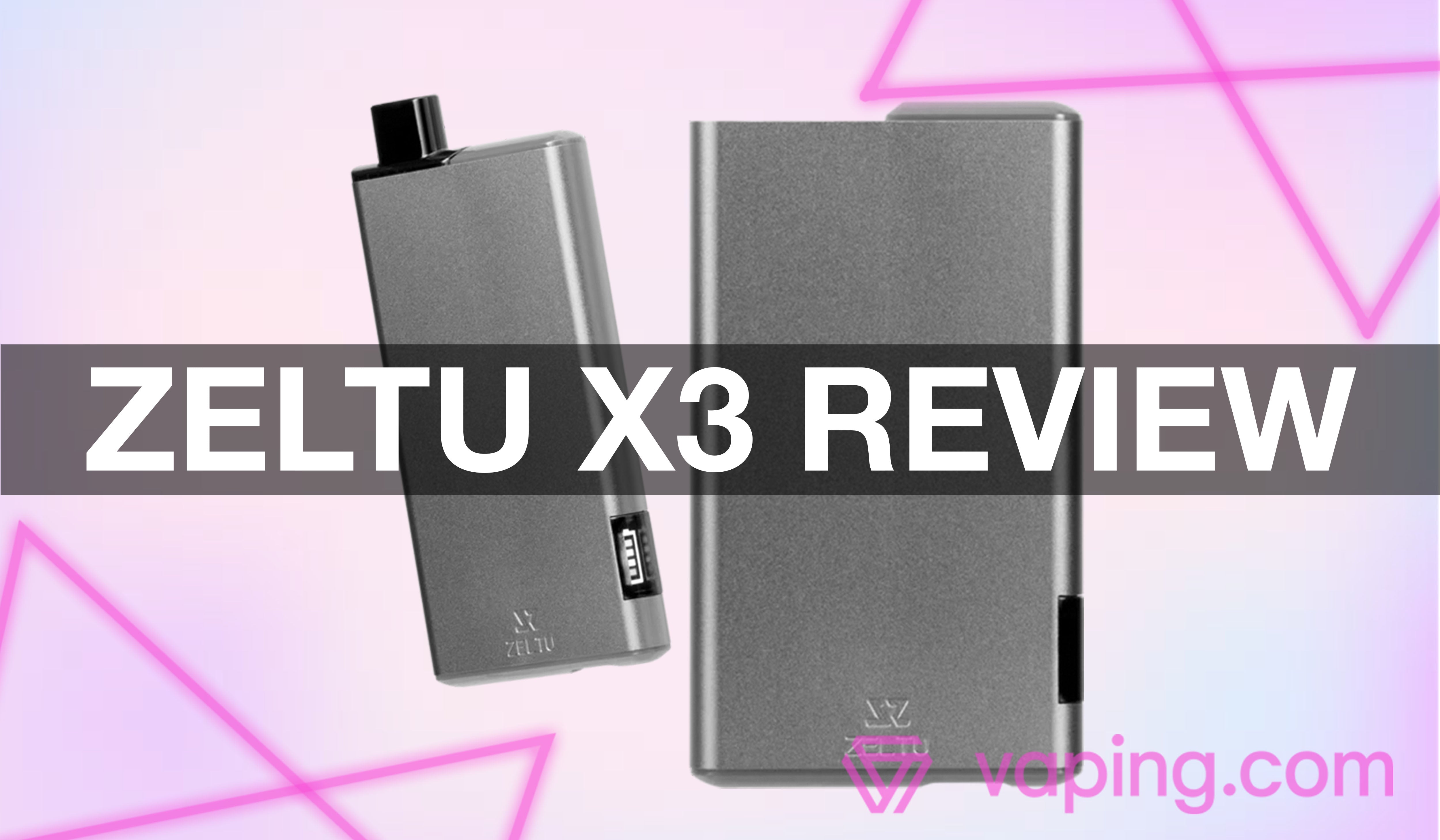A CDC study found that youth vaping rates have hit a 10-year low in 2024, including a 70% decrease since 2019. Juul did not even exist, and vaping was in its infancy the last time the last time underage use rates were this low.
Despite significant reductions in youth vaping, some politicians and advocacy groups continue to push for prohibition as the solution, ignoring the impact on adult consumers and the potential unintended consequences of such actions.
A broad coalition in Washington, made up of educators, doctors, researchers, and social justice advocates, is campaigning for a statewide ban on flavored nicotine vapes, citing concerns over youth addiction.

Ignoring Adult Consumers and Real-World Consequences
What these well-intentioned advocates overlook is that the vast majority of disposable vape users in the U.S. are adults, not minors. According to the National Youth Tobacco Survey, 870,000 youth vapers were reported this year, while data from Altria’s Q2 report shows 11.7 million adults over the age of 21 use disposable vapes.
While youth vaping is concerning, banning flavors punishes millions of adults who use these products as a safer alternative to smoking. Many former smokers’ credit flavored e-cigarettes for helping them quit traditional cigarettes.

Moreover, vaping has been consistently shown to be less harmful than smoking traditional cigarettes. According to the CDC, smoking is still the leading cause of preventable diseases such as cancer, heart disease, and lung diseases. Over 49 million adults in the U.S. still use some form of tobacco, and most experts agree that quitting smoking entirely should be the goal. For many, flavored vapes are a crucial tool in that effort.

The Dangers of Prohibition: More Smoking, Not Less
While advocates may believe banning flavors will reduce youth vaping, recent studies tell a different story. A 2023 Yale University study, led by researcher Abigail Friedman, found that flavor restrictions caused a 20% increase in traditional cigarette sales in areas where bans were enforced. This means that many people, including youth, may turn back to smoking if flavored vaping products are taken off the market. A separate study from Ohio State University showed that nearly two-thirds of youth would quit vaping if flavors were banned—this could be seen as a positive for youth health, but it also highlights that teens will either find a way to access banned products or switch to more harmful alternatives like cigarettes.
It’s also important to note that youth e-cigarette use has dropped to its lowest level in a decade, according to recent CDC reports. Tony Abboud, executive director of the Vapor Technology Association, remarked, “The notion that there is some youth vaping crisis is simply false. They’re fighting yesterday’s news.” Yet, despite this progress, politicians continue to pursue restrictive measures that will primarily hurt adult vapers.
Flavored Vapes Help Adults Quit Smoking
A major argument from flavor ban advocates is that e-cigarettes aren’t FDA-approved cessation tools. The FDA has approved seven medications to help people quit smoking, but none have been as popular or effective as flavored vaping products. Thousands of adults, especially in low-income, Black, and LGBTQ+ communities, have successfully transitioned away from traditional cigarettes using flavored e-cigarettes, finding them to be more palatable and accessible than other cessation methods.
By banning these products, legislators risk pushing these populations back to smoking. Advocates for a flavor ban often cite the risks of tobacco addiction in underrepresented communities, yet removing safer alternatives like flavored vapes only increases their reliance on cigarettes.
The Fight Ahead: Prohibition Isn’t the Solution
Prohibition has a track record of unintended consequences. From alcohol to marijuana, bans have often led to black markets, increased use of more dangerous products, and, in this case, a potential return to smoking for millions of adults. While addressing youth vaping is important, it should not come at the cost of adult consumers who rely on vaping to avoid smoking's devastating effects.
As the legislative session approaches, those who advocate for harm reduction rather than prohibition must remind lawmakers of the facts: vaping is a safer alternative for adults, and bans are not a long-term solution. Legislators must consider policies that enforce stricter age verification and penalties for underage sales rather than prohibiting flavors altogether. Only then can we balance the needs of public health with the rights of adult consumers.






Leave a comment
This site is protected by hCaptcha and the hCaptcha Privacy Policy and Terms of Service apply.